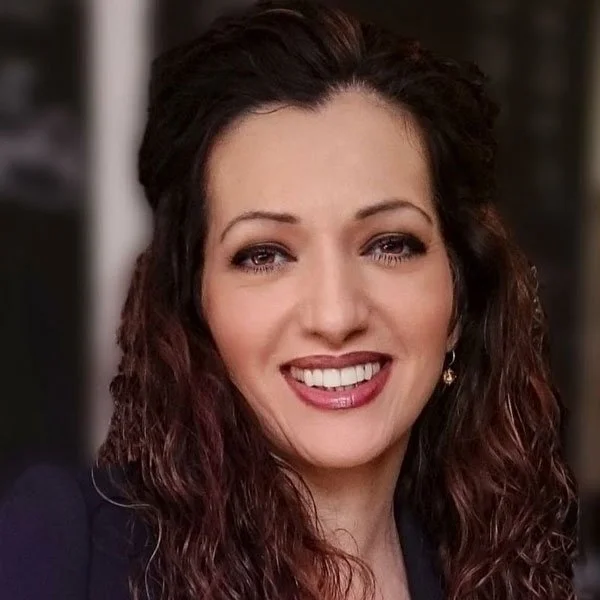The Borderline Between Legitimate Self-determination and Separatism
The World Forum on the Future of Democracy, Tech and Humankind, 19th–20th February 2024, Berlin
Alexander Salmond Former First Minister of Scotland
Gjorge Ivanov Former President of Macedonia (2009-2019)
Tasmina Ahmed-Sheikh OBE (Moderator)
Scottish politician the Founder and Former Chair of the Scottish Asian Women’s Association
Call to Action: The panellists urged the international community to actively facilitate the groundwork for peaceful avenues in the pursuit of self-determination. There is a crucial need for international recognition and support for legitimate claims to self-determination, emphasizing the importance of employing non-violent methods."
Main Outcomes
"Self-determination is both a general principle, but it's also, sui generis, It's a specific example." - Alex Salmond
"The international community should recognize that those who pursue their ends in a peaceful direction should be accorded high marks in terms of the allocation of which people qualify in terms of self-determination." - Alex Salmond
Panel discussion summary
A panel featuring former Scottish First Minister Alex Salmond, former Macedonian President George Ivanov, moderated by former UK Parliament member Tasmina Ahmed-Sheikh OBE, discusses the line dividing legitimate self-determination from separatism.
George Ivanov discusses the 20th century, which saw the emergence of 196 independent states alongside 30 ongoing frozen conflicts. There are around 70 requests for new independent states, with the expectation of reaching 100 by 2050. Ivanov highlights the importance of understanding the legal norms surrounding self-determination and secession, as they can potentially withdraw the future of the world. Ivanov cites cases such as East Timor, Kosovo, Palestine, the decline of Czechoslovakia and the Soviet Union, decolonization, the collapse of the Empire, and the Civil War in the United States. He also discusses the legal framework of these issues, referencing the 1877 case William v. Brife, which defined the right of secession and the lines between separatism and separatism.
Ivanov notes that the right of self-determination is not regulated, and if successful, the process has not succeeded in formulating a new state. Ivanov also discusses the cases of Catalonia, Scotland, Macedonia, Slovenia, Croatia, and the two national federations that emerged after Yugoslavia's collapse.
Second, Alex Salmond highlighted the general principle of self-determination deeply embedded in the United Nations and the evolving body of international law on self-determination. He emphasized the criteria for judging whether a people qualify as a national entity, including distinct geographical boundaries, institutional identities, a separate legal system, education system, churches, and a distinct feeling of national identity. Salmond advocated for adding another aspect to the criteria, which is the conduct of the people seeking self-determination, with a focus on peaceful means such as pursuing claims through the ballot box or peaceful resistance. He cited Mahatma Gandhi's peaceful self-determination campaign in India as an example.
Salmond emphasized the need for international organisations to provide a set procedure that facilitates the peaceful expression of wishes for self-determination and puts a premium on the ballot box and peaceful progression of these ideas. Salmond also discussed the case of Scotland, highlighting the peaceful pursuit of independence through the ballot box and the need for more defined legal processes and respect for movements pursuing their ends peacefully and democratically.
Gjorge Ivanov addresses specific cases such as Catalonia, Scotland, and Macedonia, highlighting the complexities and conflicts surrounding these issues, while Alex Salmond emphasizes the importance of addressing the means, not just the ends, and the need for an established procedure, both in terms of the United Nations recognition and in terms of the International Court of Justice, to pursue claims in a legal fashion. This approach is seen as vital in preventing conflicts and ensuring a fair and transparent process for evaluating self-determination claims.
An audience member raises concerns about inconsistent international recognition of self-determination, citing double standards in labelling certain groups as terrorists or separatists. He questions who determines legitimacy, especially in cases involving armed struggle. Alex Salmond stresses the importance of peaceful means, referencing Gandhi's nonviolent approach. Gjorge Ivanov notes international recognition of successful self-determination leading to new states, citing East Timor as a positive example.
The discussion highlights the need for consistent support and recognition for legitimate self-determination claims and underscores the importance of peaceful methods.



